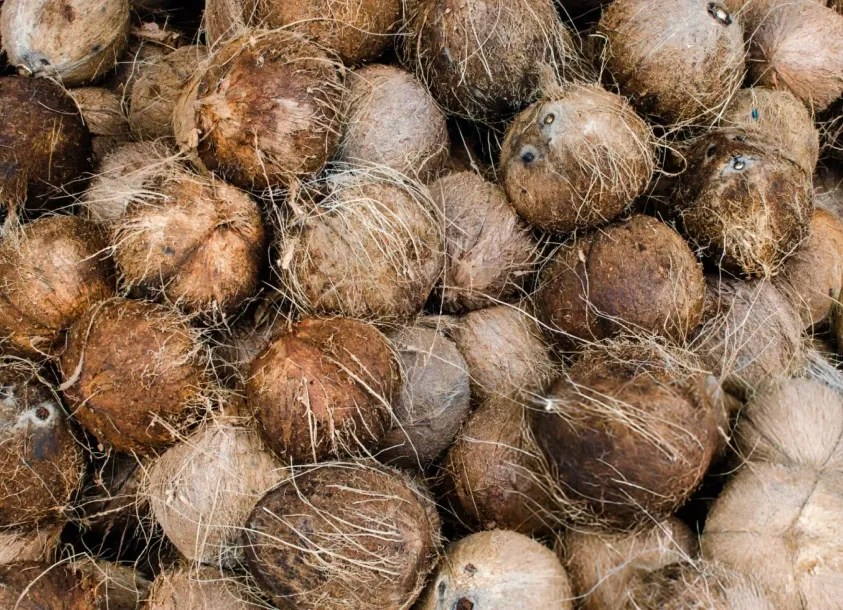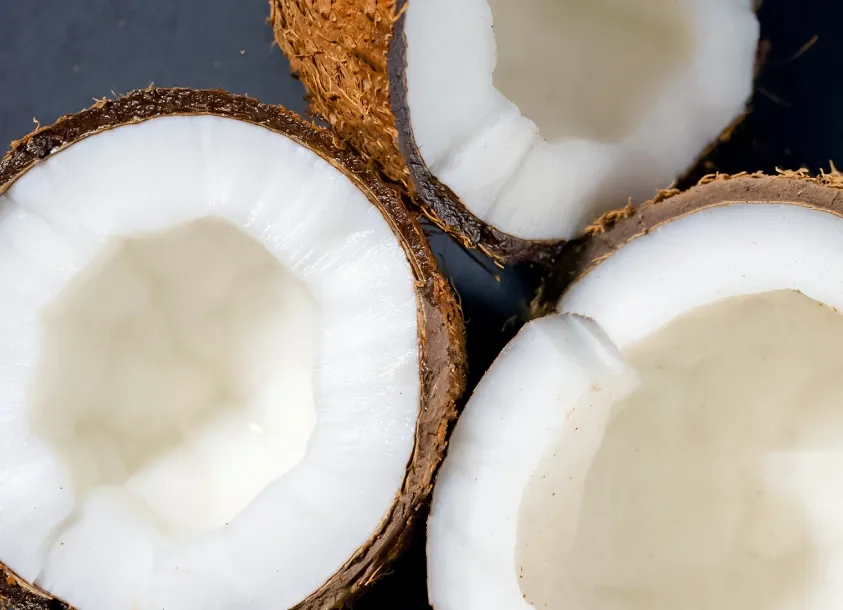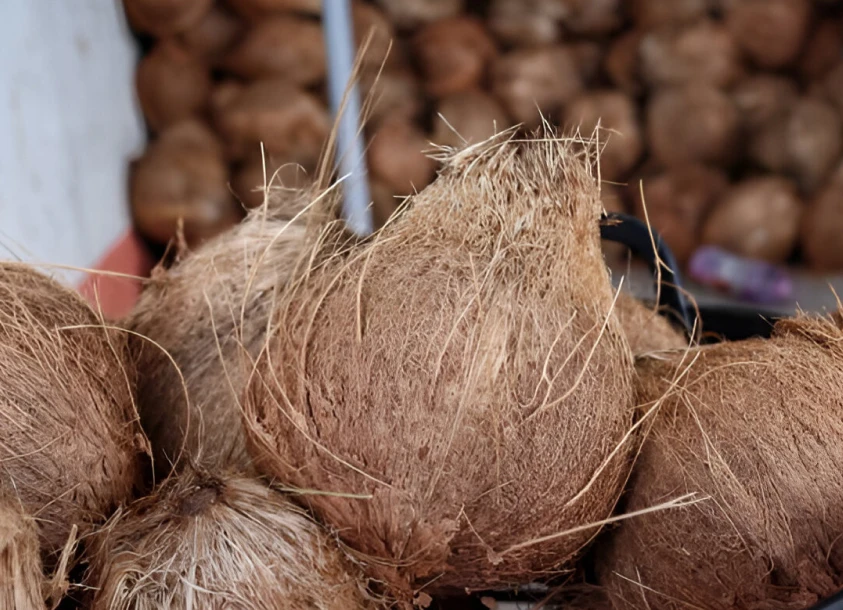Why CIF Coconut Exporters Are a Smart Choice for Global Importers
Why CIF Coconut Exporters Are a Smart Choice for Global Importers Understanding the Role of CIF Coconut Exporters in Global Trade Behind every successful CIF shipment is a robust logistics network. CIF (Cost, Insurance, and Freight) is a widely used international trade term where the seller is responsible for covering the cost of goods, marine insurance, and freight charges up to the buyer’s port of destination. This pricing model is especially beneficial for coconut importers, as it simplifies the logistics process and reduces unexpected shipping costs. Exporters often have their own packing and loading facilities, allowing them to maintain quality, moisture levels, and consistency throughout the process. Combined with digital tracking systems and customs integration, international coconut logistics from India are both fast and dependable. What truly enhances India’s edge is the combination of modern export systems and traditional sourcing practices truly enhances India’s edge. Many Indian exporters integrate export-grade packaging with coconut grading, which reduces spoilage and extends coconut shelf life, even during long-distance transport. What Does CIF Cover in Coconut Exports? For coconut buyers, CIF pricing simplifies the complexities of international sourcing. Here’s what’s included: Freight Costs: The exporter pays for transport to the buyer’s port. Insurance Coverage: Ensures the coconuts are financially protected during transit. Port Handling Charges: Covered at the origin, reducing surprise costs. Export Documentation: Includes commercial invoices, packing lists, phytosanitary certificates, and bills of lading. Risk Transfer: Responsibility shifts to the buyer only after the cargo arrives at the destination port. By choosing exporters that provide Cost Insurance Freight coconut contracts, buyers minimize exposure to unpredictable shipping variables. Why Indian Exporters Are Leaders in CIF Coconut Shipments India’s dominance in the global coconut export sector isn’t only about high-quality produce; it’s also about export reliability. Many seasoned coconut exporters in India operate directly from sourcing hubs in Tamil Nadu, Kerala, and Karnataka — regions that supply both husked and semi-husked coconuts. These exporters are experienced in international shipping procedures and maintain strong ties with major seaports like Cochin, Chennai, and Mangalore. Their knowledge of coconut export documentation — including phytosanitary compliance, FSSAI registration, and fumigation protocols — positions them as trusted CIF suppliers. Moreover, Indian exporters can quote accurate CIF prices due to their in-house logistics networks, packaging units, and strong relationships with freight forwarders. This makes India one of the most reliable destinations for CIF coconut exporters worldwide. Key Benefits of CIF for Bulk Coconut Importers Working with CIF exporters brings distinct advantages, especially for high-volume buyers like wholesalers, distributors, and FMCG companies: Clarity in Pricing: With freight and insurance costs included, total import costs are predictable. Saves Time and Resources: Buyers avoid the hassle of managing shipping and insurance separately. Streamlined Documentation: Indian exporters handle the bulk of compliance paperwork. Better Risk Management: With insurance included, damage during transit is covered. Improved Delivery Timelines: Exporters with CIF contracts coordinate shipping schedules more precisely. This model ensures better control over bulk coconut shipping, reducing delays and inefficiencies for importers. The Logistics Strength Behind Indian CIF Coconut Exporters There is always a logistics network behind every CIF cargo. This has to do with the developed port infrastructure, but also with their proximity to coconut-producing areas. For example, Tamil Nadu’s ports are only a few hours away from large farms located in Pollachi and Thanjavur, allowing for immediate transit from farm to port. Most exporters have their facilities to pack and load the product, allowing them to control quality, moisture, and consistency. Along with digital tracking systems and integration into customs, this makes coconut products from India internationally both fast and reliable. The “X” factor for India honestly, lies at the intersection of modern systems for exports and age-old methods of sourcing. Even in long-distance transport, many Indian exporters combine export-quality packaging with coconut grading, preventing spoilage and ensuring coconut freshness. How to Choose the Right CIF Coconut Exporter If you’re an international buyer planning to import coconuts under CIF terms, here’s what to look for in a supplier: Proven Export Record: Check their experience with CIF coconut shipments. Port Access: Exporters near ports like Chennai, Cochin, or Tuticorin offer quicker handling. Certifications & Compliance: Ensure they meet APEDA, FSSAI, and phytosanitary standards. In-House Grading & Packaging: Quality is better maintained when these steps are done by the exporter. Volume Capability: Choose exporters that can scale supply according to seasonal demand. Transparent Communication: CIF contracts need clarity; your exporter should be able to provide detailed quotes and timelines. Partnering with the right CIF coconut exporters will reduce stress and improve long-term profitability for importers in the Middle East, Europe, and Southeast Asia. CIF Makes Indian Coconut Exports Reliable and Buyer-Friendly The CIF model has proven itself a disruptive innovation for importers wanting to source coconuts with transparency, speed, and reliability. CIF coconut exporters assume the risk and responsibility of CIF logistics on the selling side, thus minimizing buyers’ risks while also eliminating stress. For example, Indian coconut exporters, in particular, have been known to provide a more simplified CIF contract, along with backing infrastructure, knowledge of the industry, and documentation practices. CIF export and import is the most convenient way for procuring coconuts, and when engaging with an experienced Indian CIF exporter, you can be assured that the product will arrive fresh, on time, and free of hidden fees, whether you are looking to buy coconuts for retail, for processing, or industrial purposes. With global coconut consumption on the rise, CIF is a system that can be adapted long-term, and one that has already positioned India sustainably to be the preferred destination for importers globally. Latest Post Our Social Media Lorem ipsum dolor sit amet consectetur. Lorem ipsum dolor sit amet consectetur. Consequat vulputate convallis eget mollis viverra nunc mi egestas. Risus facilisi nullam donec.









